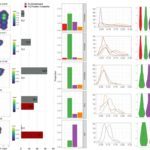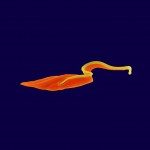Lien vers Pubmed [PMID] – 32032359
Lien vers HAL – pasteur-02870561
Lien DOI – 10.1371/journal.pntd.0008059
PLoS Negl Trop Dis 2020 Feb; 14(2): e0008059
During a blood meal, female Anopheles mosquitoes are potentially exposed to diverse microbes in addition to the malaria parasite, Plasmodium. Human and animal African trypanosomiases are frequently co-endemic with malaria in Africa. It is not known whether exposure of Anopheles to trypanosomes influences their fitness or ability to transmit Plasmodium. Using cell and molecular biology approaches, we found that Trypanosoma brucei brucei parasites survive for at least 48h after infectious blood meal in the midgut of the major malaria vector, Anopheles coluzzii before being cleared. This transient survival of trypanosomes in the midgut is correlated with a dysbiosis, an alteration in the abundance of the enteric bacterial flora in Anopheles coluzzii. Using a developmental biology approach, we found that the presence of live trypanosomes in mosquito midguts also reduces their reproductive fitness, as it impairs the viability of laid eggs by affecting their hatching. Furthermore, we found that Anopheles exposure to trypanosomes enhances their vector competence for Plasmodium, as it increases their infection prevalence. A transcriptomic analysis revealed that expression of only two Anopheles immune genes are modulated during trypanosome exposure and that the increased susceptibility to Plasmodium was microbiome-dependent, while the reproductive fitness cost was dependent only on the presence of live trypanosomes but was microbiome independent. Taken together, these results demonstrate multiple effects upon Anopheles vector competence for Plasmodium caused by eukaryotic microbes interacting with the host and its microbiome, which may in turn have implications for malaria control strategies in co-endemic areas.









